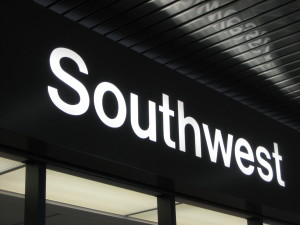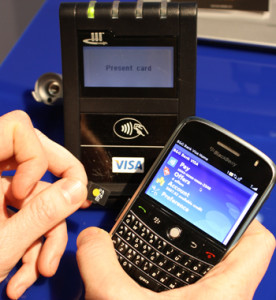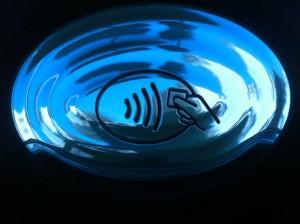May 30th, 2014 by Elma Jane
Southwest Airlines is now accepting mobile boarding passes at 28 total U.S. airport locations, its newest convenience feature that enables fliers to pass security and board an aircraft simply by waving their mobile device.
Following a tiered rollout from last year, the paperless boarding system requires minimal user action. Passengers check in via the Southwest mobile site or branded app and choose to view their boarding pass. The image will open in a new browser and can be saved to a device’s photo gallery upon request.
Mobile apps are critical touch points in the customer journey. Native and hybrid apps are continuing to dramatically increase the ability to deploy and optimize digital strategy. If you’re customizing the experience on mobile Web only, you’re missing a huge opportunity.
Long awaited arrival
New airline initiatives are offering a level of customer service that has never before been possible, and is transforming the experience of traveling to create a new barometer on which carriers will be judged.
Southwest offers two ways to attain an e-boarding pass: have one sent directly to a mobile device though electronic mail or text message when checking in online, or use the airline’s app to check in and have the pass appear with the option to save a replica to the photo gallery. When ready for boarding, passengers present their screen at both security checkpoints and gate entrance to be scanned by staff. In addition to mobile boarding pass support, the app also now includes upcoming trip cards that display flight information such as boarding position, gate location and access to flight tools such mobile check-in from the home screen.
IT takes flight
An industry wide Airline IT Trends Survey shows that more than 90 percent of airlines are increasing their investment in mobile capabilities to ease the hassles of getting through the airport and improve the in-flight experience. American, Delta, Continental and United are the biggest adopters of e-boarding support, offering the service from at least 75 airports. Mobile boarding passes are the preferred method for frequent fliers, as business execs and the like are constantly engaged with their handhelds. Paper passes also become more likely to be lost or wrinkled.
Another advantage of the electronic offering is that some travelers may not have access to a printer, and so a mobile boarding pass relieves the frustration of waiting on line at a kiosk. Of course there are also obvious drawbacks that may hinder the proposed convenience factor, one being that a mobile device may malfunction or run out of battery, resulting in a delayed trip or even a missed flight.
Mobile passes may also present a challenge if multiple people are traveling under one reservation. U.S. Airways and Continental restrict the service to one person per reservation. Other airliners allow each group member to check in line and have a separate pass sent to appropriate phones. While certain cons defeat the purpose of going mobile for efficiency reasons, the benefits offer peace of mind as airline carriers continue to improve the technology.
The option helps deliver more personalized and relevant experiences to on-the-go consumers leveraging a unified customer profile to collect, own and act on data not only on mobile apps, but also across kiosks and other platforms. This approach to mobile apps uniquely sets marketers free in terms of customization and delivery of the experience, and has delivered great results.
Posted in Smartphone Tagged with: airline carriers, airports, American, app, boarding pass, cards, carriers, consumers, Continental, customer service, data, Delta, digital, e-boarding pass, electronic mail, hybrid apps, mobile, Mobile Apps, mobile boarding, mobile device, Mobile passes, mobile site, mobile Web, phones, platforms, Security, technology, tools, U.S. Airways and Continental
April 15th, 2014 by Elma Jane
Amsterdam, Netherlands-based Cardis has been piloting its technology in Europe with Raiffeisen Bank in Austria and Sberbank in Russia. They are now focused on the U.S., as this is the fastest growing mobile payments market in the world, where there’s a huge opportunity. Integration of technology with a large U.S. processor and with a major U.S. retail brand, which will be launching a mobile site and mobile app using Cardis solution.
Cardis International is planning an April launch in the U.S. for its technology, which enables merchants to accept low-value contactless or mobile payments without incurring high processing charges. Cardis is able to bring down the processing cost of low-value payments, the company said, by aggregating multiple transactions into a single payment.
The problem
Contactless card and NFC-based mobile payments are typically for low amounts, and yet still use a card processing infrastructure that was designed 40 years ago when the average credit card transaction was $100.
Traditional card processing systems require each transaction to be individually processed through the payment system, including authorization, clearing and settlement. The resulting variable costs of processing each transaction are independent of the transaction amount and too high for low-value payments, particularly in low-margin industries such as quick-service restaurants. QSR restaurants often have a 3 percent profit margin, yet, for low-value contactless payments, the processing cost could be as high as 6-7 percent of the transaction value.
Mobile and contactless cards offer consumers a convenient form factor. But they don’t solve the problem that low-value card payments are very expensive for merchants.
As an ever-increasing percentage of transactions have become cashless, card processing fees have become a significant cost. Costs that are based on the number of transactions, rather than their value. With average per person expenditures of $5 or under, feels each swipe fee much more than a business where customers spend $50 or more. But not accepting credit/debit cards for low-value transactions isn’t an option as many of customers don’t carry cash anymore.
Aggregation
Cardis’ solution is to act as an aggregator of low-value payments, sending a single batched transaction through to a processor instead of multiple low-value transactions. As there is no per transaction processing of individual low-value purchases, the cost-per-transaction is significantly reduced.
Cardis provides its technology as a software plug-in to payment service providers for contact-based and contactless card payments, mobile wallet transactions and NFC payments.
There are two models. For card payments, it will aggregate multiple purchases by an individual cardholder at a single merchant on a post-paid basis up to a specific amount, for example $20. To guarantee payment to the merchant, since the aggregated transaction is processed at a later date, it will pre-authorize an amount, for example $15, the first time the customer makes a purchase at that merchant.
Alternatively, merchants can opt for Cardis’ prepaid system. This involves the consumer setting up a prepaid account hosted by Cardis’ sponsoring bank that is topped up via ACH (automated clearing house) transfers. Using the Cardis prepaid account on a smartphone provides the digital equivalent to cash.
With its post-paid solution, merchants will save 30-50 percent per transaction compared to conventional card processing fees, while its prepaid solution saves merchants 80 percent per transaction. With the post-paid solution, it will only aggregate a customer’s purchases at a single specific merchant. But, as the prepaid solution aggregates the customer’s purchases across multiple merchants, this enables to offer a much lower processing fee to the merchant.
Cardis provides an audit trail enabling consumers to track individual transactions that are aggregated using its technology. Consumers don’t lose any of their card protection rights and guarantees by agreeing to let a merchant aggregate their payments through Cardis. They can always charge back any disputed transactions.
Cardis sees opportunities for digital content providers such as online music stores and games providers to use its aggregation technology. It can integrate solution with existing digital wallets.
Raiffeisen
In 2012, Austria’s Raiffeisen Bank launched a pilot of Cardis technology for NFC-based Visa V Pay debit card payments in partnership with Visa Europe. Raiffeisen’s MobileCard mobile payment product uses a secure element stored on an NFC-enabled MicroSD card inserted in a mobile phone. Although Cardis supports secure elements stored on SIM cards as well as on MicroSD cards and on the cloud, Raiffeisen opted for MicroSD cards, as this is an easier solution to implement.
Raiffeisen cardholders participating in the pilot use MobileCard on average three times a week, with an average transaction value of ($5.70). Merchants accepting MobileCard are seeing 40 percent to 70 percent lower merchant processing fees for an average transaction value of ($5.43) to ($13.60).
Spindle
In October 2013, Spindle, a U.S. mobile commerce company, signed an agreement with Multi-max, a manufacturer of vending machines for mid-size and small offices throughout North America, Europe and Asia. Spindle will integrate its MeNetwork mobile commerce technology into Multi-max’s line of K-Cup vending machines for rollout across the U.S.
The MeNetwork solution will incorporate all card-based payment acceptance services, as well as mobile marketing services. Spindle’s partner Cardis will provide low-value payment processing services for purchases at K-Cup vending machines.
Posted in Credit card Processing, Credit Card Security, Digital Wallet Privacy, e-commerce & m-commerce, Electronic Payments, Gift & Loyalty Card Processing, Internet Payment Gateway, Mobile Payments, Mobile Point of Sale, Near Field Communication, Payment Card Industry PCI Security, Smartphone, smartSD Cards, Visa MasterCard American Express Tagged with: accept, ach, aggregated, aggregation, aggregator, authorization, automated clearing house, average transaction, batched, card payments, card processing infrastructure, card processing systems, card-based payment acceptance, cardholders, clearing, contactless, contactless payments, cost-per-transaction, credit card transaction, debit card payments, Digital wallets, high processing charges, low-value payments, merchant aggregate, Merchant's, microSD, mobile app, mobile commerce, mobile payment, Mobile Payments, mobile site, mobile wallet transactions, nfc-based, payment service providers, pre-authorize, prepaid, processed, Processing, processing cost, processing fees, processor, settlement, smartphone, transactions, transfers
March 3rd, 2014 by Elma Jane
A solution for mobile commerce will be needed eventually, whether you’re an ecommerce merchant or you run a brick-and-mortar shop.
There are mobile payment platforms for digital wallets, smartphone apps with card-reader attachments, and services that provide alternative billing options. Here is a list of mobile payment solutions.
Boku enables your customers to charge their purchases directly to their mobile bill using just their mobile number. No credit card information, bank accounts or registration required. The Boku payment option can be added to a website, mobile site, or app. Price: Contact Boku for pricing.
Intuit GoPayment is a mobile credit card processing app from Intuit. It accepts all credit cards and can record cash or check payments. Intuit GoPayment transactions sync with QuickBooks and Intuit point-of-sale products. Intuit GoPayment works with iOS and Android devices and provides a free reader. Price: $12.95 per month and 1.75 percent per swipe, or 2.75 percent per swipe and 3.75 per keyed transaction.
iPayment MobilePay is a mobile payment solution from Flagship Merchant Services and ROAMpay. The service accepts all major cards and can record cash transactions. To help build your customer database, the app completes customer address fields for published landlines. The app can handle taxes, tips, and can record transactions offline. You can use the service month-to-month. The app and the reader are free. Price: $7.95 per month; Each transaction costs $0.19 plus a swipe fee maximum of 1.58 percent, or a key fee between 1.36 and 2.56 percent.
ISIS mobile commerce platform enables brick-and-mortar stores to collect payments (via an NFC terminal) from the mobile devices of their customers. Provide your customers with a simplified checkout process through the contactless transmission of payments, offers, and loyalty integrated in one simple tap. Price: Isis does not charge for payment transactions in the Isis Mobile Wallet. Payment transaction fees will not be increased by working with Isis.
LevelUp is mobile payment system that uses QR codes on smartphones to process transactions. Use LevelUp with a scanner through your POS system, or use a standalone scanner with a mobile device. You can also enter the transaction through the LevelUp Merchant App, using your smartphone’s camera to read the customer’s QR Code and entering the amount to complete the transaction. LevelUp also provides tools to utilize customer data. Price: LevelUp charges a 2 percent per transaction fee. Scanner is $50; tablet is $200.
MCX is a mobile application in development by a group of large retail merchants. Details on the solution are vague, but MCX is intended to offer a customizable platform that will be available through virtually any smartphone. MCX’s owner-members include a list of merchants in the big-box, convenience, drug, fuel, grocery, quick- and full-service dining, specialty-retail, and travel categories. Price: To be determined.
mPowa is a mobile payment app to process credit and debit card transactions, and record cash and check sales. mPowa will soon launch its PowaPIN chip and PIN reader for the EMV (“Europay, MasterCard, and Visa”) card standard. (Developed in Europe, EMV utilizes a chip embedded in a credit card, rather than a magnetic strip.) The EMV standard is likely to gain footing to combat credit card fraud. mPowa is a good solution for merchants with a global presence. Price: 2.95 percent per transactions, or .25 percent or $0.40 per transaction when used as a current processor’s point-of-sale system.
PayAnywhere is a solution to accept payments from your smartphone or tablet with a reader. It features an automatic tax calculation based on your current location, discounts and tips, inventories with product images and data, and more. Bilingual for English and Spanish users. PayAnywhere provides a free credit card reader and free app, available for iOS and Android. Price: 2.69 percent per swipe, 3.49 percent plus $0.19 per keyed transaction.
PayPal Here gives you a variety of options for accepting payments, including credit cards, PayPal, check, record cash payments, or invoice. With PayPal Here, you can itemize sales totals, calculate tax, offer discounts, accept tips, and manage payment email notifications. Available for iOS and Android. The app and reader are free. Price: 2.75 percent per swipe and 3.5 percent plus $0.15 per manually-entered transaction.
Square is a simple approach to mobile credit card processing. Square provides a free point of sale app and a free credit card reader for iPhones and iPads. Square offers a selection of tools to track sales, taxes, top-purchasing customers, and more. Square’s pricing is on the higher end, but with no monthly fee Square may be a good fit if you have infrequent mobile transactions. Price: 2.75 percent per swipe and 3.5 percent plus $0.15 per manually-entered transaction.
Posted in Credit card Processing, Credit Card Reader Terminal, Credit Card Security, Digital Wallet Privacy, e-commerce & m-commerce, Electronic Check Services, Electronic Payments, EMV EuroPay MasterCard Visa, Financial Services, Internet Payment Gateway, Mail Order Telephone Order, Mobile Payments, Mobile Point of Sale, Near Field Communication, Point of Sale, Small Business Improvement, Smartphone, Visa MasterCard American Express Tagged with: accepts all credit cards, alternative billing, Android, bank accounts, brick and mortar, check payments, contactless transmission, credit and debit transactions, credit card reader, credit-card, database, Digital wallets, ecommerce merchant, EMV, free app, iOS, itemize, keyed transaction, mobile commerce, mobile credit card processing, mobile payment platforms, mobile site, mobile transactions, nfc terminal, point of sale, process transactions, qr codes, record transactions offline, smartphone apps card-reader attachments, transactions


